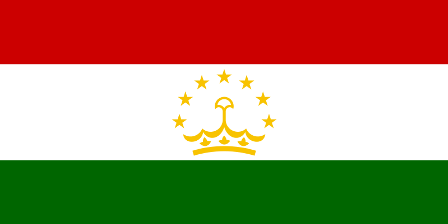One of these following facts about Tajikistan might probably give you much information about this country. Tajikistan, officially known as the Republic of Tajikistan, is a mountainous landlocked country in Central Asia. It borders Afghanistan to the south, Uzbekistan to the west, Kyrgyzstan to the north, and China to the east. Chitral and Gilgit-Baltistan are separated from Tajikistan by the narrow Wakhan Corridor in the south. Most of Tajikistan’s population belongs to the Persian-speaking Tajik ethnic group, who share language with Afghanistan and Iran. To get to know more about this country, here are some other facts about Tajikistan you might be interested in.
Facts about Tajikistan 1: Etymology
Tajikistan means the “Land of the Tajiks”. The word Tajik was used by medieval Turks to refer to Iranian-speaking peoples. From the 11th century, the term referred to East Iranian people, but by the 15th century came to be applied to Persian speakers. In medieval Persian literature, Tajik appears as a synonym of “Persian”.
Facts about Tajikistan 2: Prehistory
The territory of what is now Tajikistan has been inhabited continuously since 4000 B.C. It has been under the rule of various empires throughout history, for the longest period being part of the Persian Empire. It was originally called Neb for a short period of time, before being given the name Tajikistan.
Facts about Tajikistan 3: Culture
Historically, Tajiks and Persians come from very similar stock, speaking variants of the same language and are related as part of the larger group of Iranian peoples. The Tajik language is the mother tongue of around 80% of the citizens of Tajikistan. The main urban centers in today’s Tajikistan include Dushanbe, Khujand, Kulob, Panjakent and Istravshan. There are also Uzbek, Kyrgyz and Russian minorities.
Facts about Tajikistan 4: Education
The 2002-2005 public spending on education was 3.5% of the GDP, although it was it was 3.9% in 2011. According to a UNICEF-supported survey, about 25 percent of girls in Tajikistan fail to complete compulsory primary education because of poverty and gender bias, although literacy is generally high in Tajikistan.
Facts about Tajikistan 5: Chiefs of State and Cabinet Members of Government
The President of Tajikistan is Emomalii Rahmon, and the Prime Minister is Kokhir Rasulzoda. The First Deputy Prime Minister is Matlubkhon Davlatov. The two Deputy Prime Ministers are Murodali Alimardon and Ruqiya Qurbanova.
Facts about Tajikistan 6: Largest Capital City
The largest city and capital is Dushanbe with about 700,000 people, followed by Khujand, Kulob, Qurghonteppa, Istaravshan, Vahdat, Konibodom, Tursunzoda, Isfara, and Panjakent.
Facts about Tajikistan 7: Highest Mountain
The highest mountain is Ismoil Somoni Peak at 7,495 meters or 24,590 feet, followed by Ibn Sina Peak, Peak Korzhenevskaya, Independence Peak, the Akademiya Nauk Range, Karl Marx Peak, Garmo Peak, Mayakovskiy Peak, Concord Peak, and Kyzylart Pass.
Facts about Tajikistan 8: Religion
Sunni Islam of the Hanafi school has been officially recognized by the government since 2009. Tajikistan considers itself a secular state with a Constitution providing for freedom of religion. The Government has declared two Islamic holidays, Id Al-Fitr and Idi Qurbon, as state holidays.
Facts about Tajikistan 9: Religious Community
By law, religious communities must register by the State Committee on Religious Affairs (SCRA) and with local authorities. Registration with the SCRA requires a charter, a list of 10 or more members, and evidence of local government approval prayer site location.
Facts about Tajikistan 10: Politics
Almost immediately after independence, Tajikistan was plunged into a civil war that saw various factions, allegedly backed by Russia and Iran, fighting one another. All but 25,000 of the more than 400,000 ethnic Russians, who were mostly employed in industry, fled to Russia. By 1997, the war had cooled down, and a central government began to take form, with peaceful elections in 1999.
Hope you would find those Tajikistan facts really interesting and useful for your additional reading.










 www.PortlandPayday.Loans
www.PortlandPayday.Loans